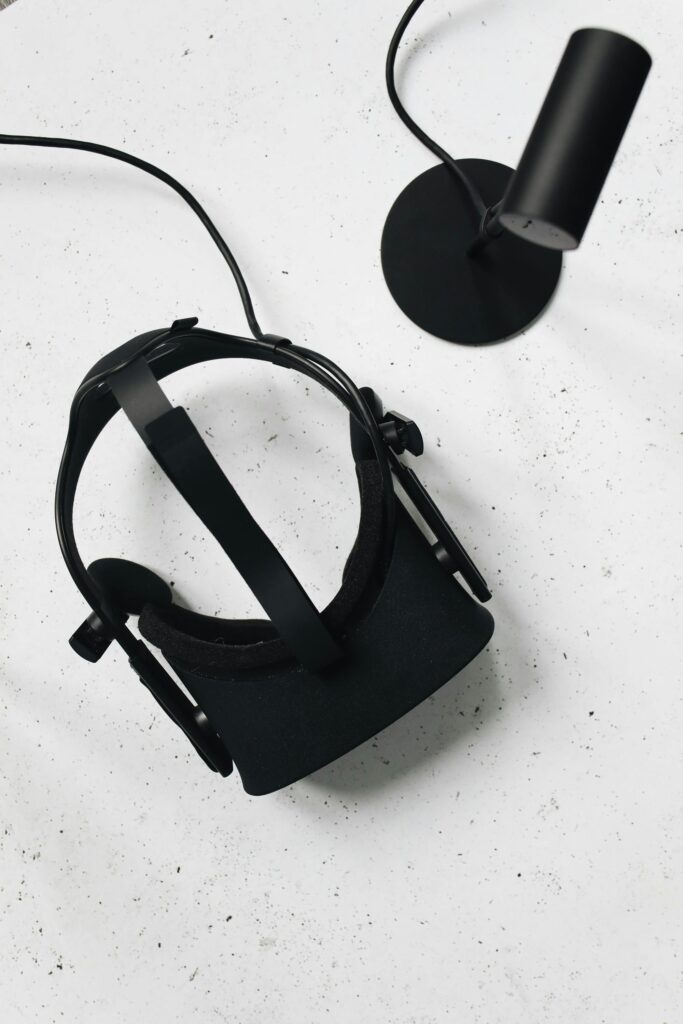Augmented Reality vs Virtual Reality: Top 10 Key Differences and Applications
Introduction
The tech world is murmuring with discussions about Extended Reality (AR) and Expanded Reality (VR). These best-in-class progressions are evolving adventures, from gaming and preparing to clinical benefits and publicizing. Yet, what separates them? In this blog, we’ll separate the main 10 vital contrasts between AR and VR and investigate their most thrilling applications. Whether you’re a tech fan or an entrepreneur, understanding these differentiations can assist you with remaining ahead in this steadily developing computerized scene.
What is Augmented Reality (AR)?

Augmented Reality upgrades this present reality by overlaying advanced components like pictures, message, and sounds onto your environmental factors. Not at all like Augmented Experience, AR doesn’t supplant reality; it adds to it.
Key Highlights of AR:
• Joining with This present reality: Computerized objects are superimposed on the actual climate.
• Gadgets Utilized: AR chips away at cell phones, tablets, AR glasses, and, surprisingly, some shrewd contact focal points.
• Examples of AR:
o Pokémon GO: A game that allows clients to find virtual Pokémon in certifiable areas. o IKEA Spot Application: Empowers clients to envision furniture in their homes utilizing AR
What is Virtual Reality (VR)?

Virtual Reality lowers clients in a totally modernized environment, eliminating them from the genuine world. By wearing a VR headset, clients can investigate mimicked universes that vibe extraordinarily exact.
Key Elements of VR:
• Full Drenching: The client encounters a totally virtual world.
• Gadgets Utilized: VR headsets like Oculus Mission, HTC Vive, or PlayStation VR.
• Instances of VR:
o Beat Saber: A famous VR game that consolidates music and development. o Virtual Land Visits: Permits expected purchasers to remotely investigate properties.
AR vs VR: Top 10 Key Differences
| Aspect | Augmented Reality (AR) | Virtual Reality (VR) |
| Environment | Enhances this present reality with computerized overlays | Creates a totally new advanced climate |
| Devices | Smartphones, tablets, AR glasses. | VR headsets, gloves, and movement trackers |
| User Immersion | Limited inundation — genuine world is still visible | Disconnects clients from this present reality |
| Interaction | Interacts with both real and computerized elements. | Interacts just with advanced components |
| Usage | Common in retail, schooling, and marketing | Popular in gaming, preparing, and recreations |
| Cost | Generally more reasonable to implement | Typically requires costly equipment |
| Portability | Highly convenient (chips away at smartphones). | Less compact (requires cumbersome gadgets). |
| Accessibility | Easier for novices to adopt. | Needs an expectation to learn and adapt and arrangement. |
| Market Reach | Wider reach due to cell phone integration | Niche crowd zeroed in on gaming and concentrated fields |
| Reality | Augments the current reality. | Replaces the current reality. |
Utilizations of AR and VR
1. E-Business: AR permits clients to imagine items, like furnishings or dress, prior to buying. For instance, the Sephora application allows clients to take a stab at cosmetics for all intents and purposes.
2. Education: AR applications like Google Focal point make learning intelligent, permitting understudies to investigate 3D models of planets, life systems, and that’s only the tip of the iceberg.
3. Healthcare: Specialists use AR to overlay basic data during activities, further developing accuracy.
4. Retail: Stores use AR mirrors to let clients “take a stab at” items without actual examples.
5. Gaming: Games like Pokémon GO mix the genuine and computerized universes for a connecting with experience.
1. Gaming: VR games offer vivid encounters, shipping players to altogether various universes.
2. Training Recreations: VR is utilized in ventures like aeronautics, where pilots train in sensible pilot test programs.
3. Mental Wellbeing Treatment: VR openness treatment assists patients with beating fears, PTSD, and uneasiness.
4. Real Bequest: Virtual visits permit purchasers to investigate properties from a distance, setting aside time and cash.
5. Tourism: Virtual travel encounters empower clients to visit milestones without venturing out from home.
How AR and VR harmonize one another
While AR and VR have unmistakable qualities, they can cooperate to make strong encounters. For instance, in preparing recreations, AR can give continuous information overlays, while VR drenches the student in a sensible situation. This cooperative energy is preparing for advancements in Expanded Reality (XR) and the Metaverse.
The Future of AR and VR
The fate of AR and VR is unquestionably encouraging. With progressions in Artificial Intelligence, 5G, and equipment, these advancements are turning out to be more available and strong. Enterprises like medical services, schooling, and diversion are as of now receiving the rewards, and the combination of AR and VR in the Metaverse will additionally obscure the lines between the genuine and advanced universes.
By 2025, the worldwide AR and VR market is supposed to outperform $200 billion, featuring its groundbreaking potential across areas.
Conclusion
Expanded Reality and Computer generated Reality are changing the manner in which we communicate with the world. AR improves reality, adding layers of computerized data to our environmental elements, while VR makes altogether vivid advanced encounters. Understanding their disparities and applications can assist people and organizations with tackling their maximum capacity. As these advances develop, they’ll keep on forming the fate of gaming, medical services, schooling, and then some. Whether you’re investigating AR for your next promoting effort or jumping into a VR gaming experience, the conceivable outcomes are endless. What’s your number one utilization of AR or VR? Share your considerations in the remarks underneath!


